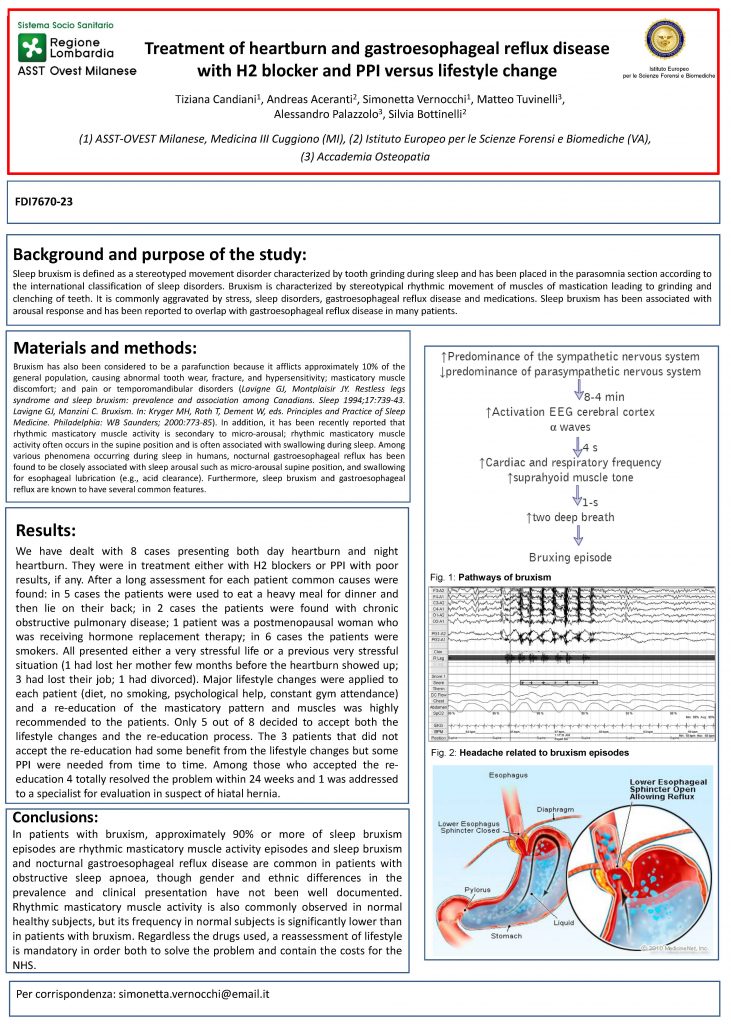Heartburn and reflux are usually treated with H2 blocker and PPI but often drugs are not effective because they require a radical change in lifestyle rather than a “simple” treatment of symptoms
Sleep
bruxism has been associated with arousal response and has been reported to
overlap with gastroesophageal reflux disease (GRD) in many patients. Among
various phenomena occurring during sleep in humans, nocturnal gastroesophageal
reflux has been found to be closely associated with sleep arousal such as
micro-arousal supine position, and swallowing for esophageal lubrication (e.g.,
acid clearance). Sleep bruxism and gastroesophageal reflux are known for
several common features. We dealt with 8 cases presenting both day heartburn
and night heartburn. They were in treatment either with H2 blockers or PPI with
poor results, if any. Common causes were found: in 5 cases the patients used to
eat a heavy meal for dinner and then lie on their back; 2 patients were found with chronic
obstructive pulmonary disease; 1 patient was a postmenopausal woman on hormone
replacement therapy; 6 patients were smokers. All presented a very stressful
life or previous very stressful situations. Major lifestyle changes and a
re-education of the masticatory pattern and muscles was highly recommended to
the patients. Only 5 out of 8 decided to accept both the lifestyle changes and
the re-education process. 3 patients did not accept the rieducation and had
some benefit from the lifestyle changes but some PPI were needed from time to
time. Among those who accepted the re-education 4 totally resolved the problem
within 24 weeks and 1 was addressed to a specialist for evaluation in suspect
of hiatal hernia. Sleep bruxism and nocturnal GRD are common in patients with
obstructive sleep apnoea.
Authors: T. Candiani, S. Vernocchi, A. Palazzolo, M. Tuvinelli, S. Bottinelli, A. Aceranti
Published: Italian Journal odìf Medicine, Sept 2017
Presented: Poster at FADOI national congress 2017


